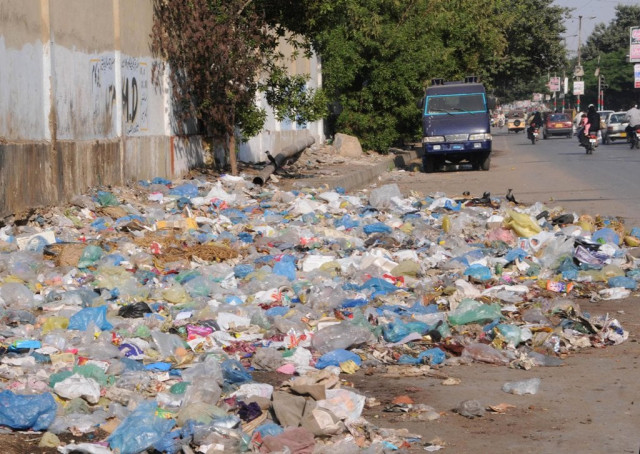Community-based recycling to help in waste management
UN-Habitat calls for establishing IRRCs in cities

PHOTO: MOHAMMAD SAQIB
Representative of UN-Habitat Pakistan Jawed Ali Khan said this during a meeting with PM’s adviser on climate change Malik Amin Aslam Khan on Thursday. Water Supply and Sanitation Collaborative Council (WSSCC) Country Coordinator Tanya Khan was also present.
Khan apprised the adviser regarding Integrated Resource Recovery Centre (IRRC) a community-based recycling unit which has been established in Sector G-15 to recover value from waste and provide livelihood opportunities to the urban poor.
He said that UN-Habitat is ready to provide technical assistance, if government intends to replicate this model to other cities as well.
Khan also informed Aslam that UN-Habitat is commemorating World Habitat Day on October 1 and theme of this year "Improving Municipal Solid Waste Management is Critical for Sustainable Urban Development" is very much aligned with the objectives of the ministry of climate change.
Tanya invited the adviser to address three-day workshop being held at Pak-China Friendship Centre from October 5 to 7 on Water, Sanitation and Hygiene Issues.
Aslam said that amongst many other environmental issues, solid waste management has turned out to be a challenge in Pakistan, said.
“We are focusing on better solid waste management strategy by developing a climate responsive policy framework with collaboration of international environmental agencies and experts,” he said.
Federal Secretary Climate Change Khizar Hayat Khan and Additional Secretary Khurram Ali Agha were also present in the meeting.
Aslam said that in the last few decades, population has outpaced infrastructure development of water, sanitation and waste management.
Larger cities have seen enormous urban sprawl because of massive increase in population, besides movement from rural areas to urban centres. The peripheries of the cities are becoming part of the cities.
The cities lack sewage treatment facilities and solid waste management to cater to the teeming population which leads to severe environmental pollution and contamination of surface and ground water, Aslam said.
Aslam reiterated commitment of the government to formulate the national and provincial environmental policies through participatory approach to arrive at viable solutions for climate resilient development in the country to ensure clean and green Pakistan.
Published in The Express Tribune, September 28th, 2018.



















COMMENTS
Comments are moderated and generally will be posted if they are on-topic and not abusive.
For more information, please see our Comments FAQ